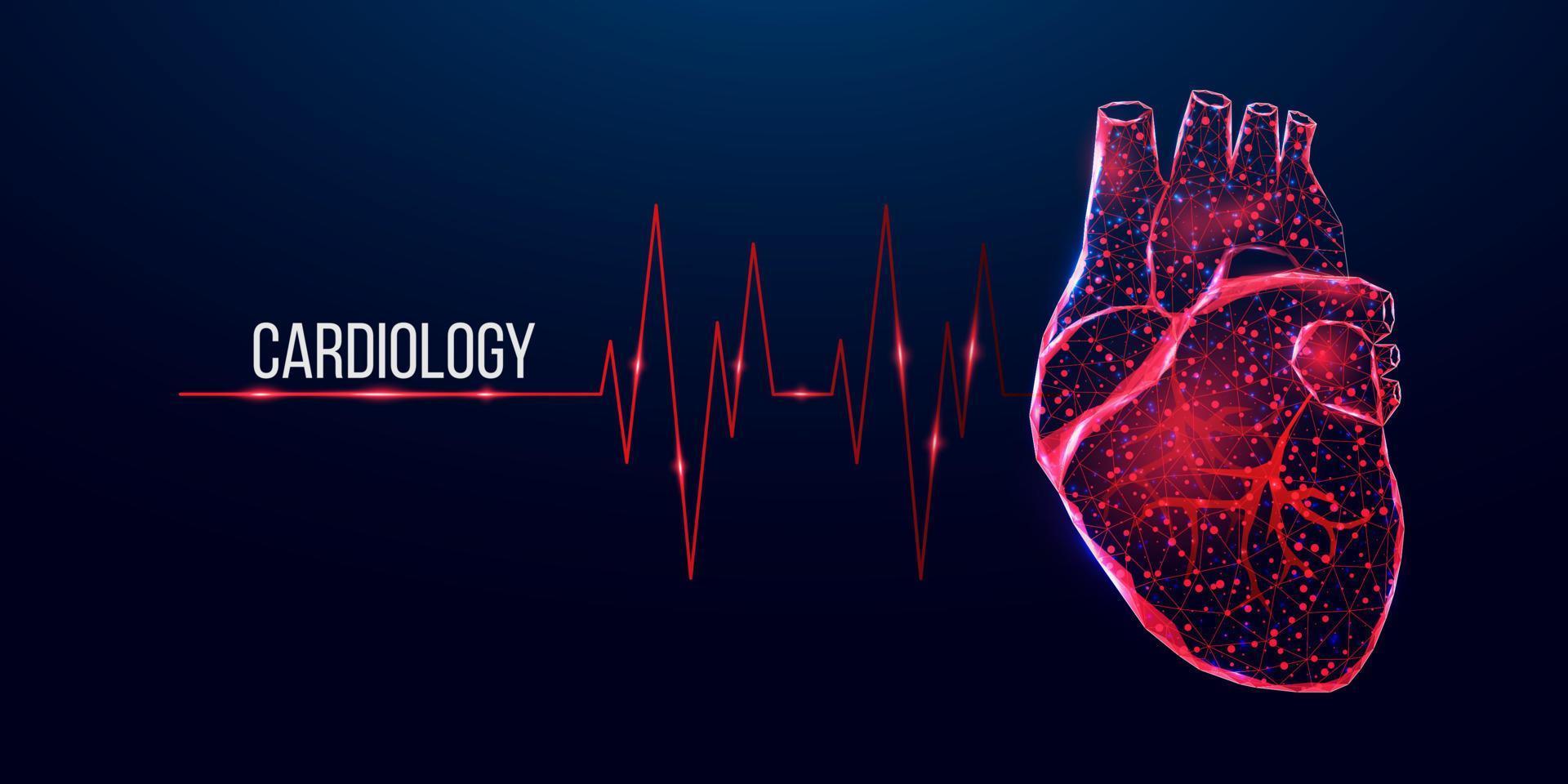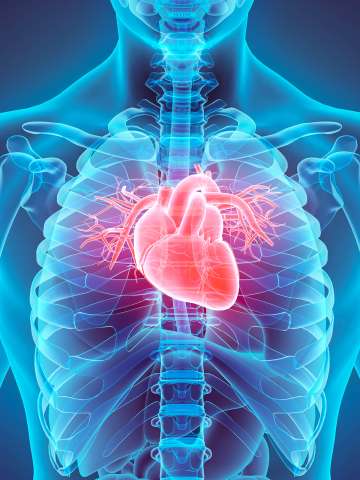Who needs a Cardiologist near me and when to book an appointment
Who needs a Cardiologist near me and when to book an appointment
Blog Article
Comprehending the Significance of Cardiology in Modern Medical Care Services
Cardiology plays a vital role in contemporary healthcare, specifically as cardiovascular disease remains to be the leading root cause of death worldwide. Advances in diagnostics and therapy have changed person treatment, allowing earlier interventions and boosted end results. Additionally, the shift in the direction of preventative cardiology equips people to handle their health proactively. As technology remains to progress, the assimilation of innovative solutions might even more redefine cardiology's effect on public wellness, motivating a better examination of arising trends and their ramifications.
The Prevalence of Heart Problem and Its Effect On Public Health And Wellness
Heart illness remains the leading cause of death worldwide, its effect prolongs far past specific clients to impact public health systems and economic situations. The high occurrence of cardiovascular disease positions a substantial stress on medical care resources, necessitating increased funding for prevention, treatment, and rehabilitation programs. Public health and wellness efforts must resolve danger variables such as excessive weight, smoking cigarettes, and sedentary way of lives, which contribute substantially to the rising occurrence of heart conditions.Moreover, the economic concern connected with heart problem is immense, encompassing not only straight medical costs yet also indirect costs associated with lost performance and premature death. Neighborhoods encounter challenges in taking care of these prices, usually resulting in disparities in healthcare access and end results. As the populace ages and lifestyle-related dangers remain to rise, the seriousness for efficient cardiology interventions ends up being vital. Dealing with heart condition is not only an issue of private health but likewise an essential public health concern.
Advancements in Heart Diagnostics and Imaging Techniques
Current advancements in cardiac diagnostics and imaging strategies have revolutionized the field of cardiology, enhancing the capacity to discover and monitor heart problem. Techniques such as cardiac MRI, CT angiography, and echocardiography have come to be progressively innovative, giving comprehensive photos of cardiac structures and functions. These methods permit for the early identification of problems like coronary artery illness, heart failing, and valvular disorders.Moreover, advancements in non-invasive diagnostics, such as wearable innovation and remote tracking devices, have equipped individuals and doctor. These devices facilitate real-time tracking of heart rhythms and other necessary indications, leading to prompt interventions. In addition, expert system is being incorporated right into imaging evaluation, enhancing accuracy and efficiency in medical diagnosis.
Developments in Therapy Alternatives for Heart Conditions
Recent innovations in cardiology have resulted in substantial developments in treatment alternatives for heart disease. These consist of sophisticated surgical methods that improve step-by-step outcomes and emerging medicines that offer brand-new avenues for therapy. As the area advances, these advancements play a crucial role in improving client care and results.
Advanced Surgical Techniques
Developments in surgical methods have transformed the landscape of cardiology, offering new hope for people with heart conditions. Minimally intrusive treatments, such as catheter-based interventions, have actually significantly reduced recuperation times and medical facility keeps. Methods like robotic-assisted surgical treatment boost accuracy, permitting specialists to navigate complex physiological structures with greater precision. Improvements in imaging technology assist in real-time visualization throughout treatments, improving results. Transcatheter aortic valve substitute (TAVR) exhibits a development in treating aortic constriction, allowing shutoff substitute without open-heart surgery. Additionally, hybrid strategies that integrate catheter-based and surgical methods give tailored remedies for numerous cardiac concerns. These advanced medical strategies not just improve person safety and security but additionally broaden therapy choices, highlighting the vital function of innovation in modern cardiology practices.
Emerging Therapies and medicines
As the landscape of cardiology remains to advance, emerging therapies and medications play an essential role in enhancing treatment choices for heart disease. Technologies such as unique anticoagulants and advanced lipid-lowering representatives have changed the monitoring of heart diseases, significantly decreasing client morbidity and death. In addition, the advancement of gene therapies and regenerative medicine provides promising opportunities for dealing with conditions formerly regarded irreversible. Scientific tests are constantly exposing the effectiveness of these therapies, pressing the limits of typical treatments. The assimilation of electronic health and wellness modern technologies assists in personalized medication, enabling for customized treatment plans based on genetic and lifestyle aspects. Collectively, these innovations underscore the dynamic nature of cardiology, enhancing person end results and redefining requirements of treatment in modern health care.
The Function of Preventive Cardiology in Patient Care
Preventive cardiology plays an essential role in person treatment by focusing on the identification of threat variables that add to heart problem. Through way of life alteration strategies and very early detection methods, doctor can properly lower the occurrence of cardio occasions - Dr Garcia. This proactive strategy not only boosts person results however likewise advertises long-term health and wellness
Threat Factor Recognition
While heart diseases stay a leading root cause of morbidity and death worldwide, reliable threat factor recognition functions as a keystone of precautionary cardiology. Identifying threat aspects such as hypertension, hyperlipidemia, diabetes mellitus, and family members history is essential for very early treatment. Health care specialists use various evaluating techniques to assess these aspects, permitting tailored safety nets. Furthermore, understanding an individual's way of living selections, such as smoking cigarettes and physical inactivity, further notifies threat evaluations. This complete analysis allows medical professionals to establish customized treatment plans targeted at mitigating dangers. By prioritizing threat variable identification, healthcare systems can improve patient end results and decrease the total worry of cardiovascular conditions, inevitably adding to improved public wellness methods and source allocation.
Lifestyle Adjustment Techniques
A plethora of research studies highlights the critical role of lifestyle modification strategies in reducing cardio disease danger. These approaches encompass nutritional changes, boosted physical task, smoking cigarettes cessation, and weight monitoring. By taking on a heart-healthy diet abundant in fruits, veggies, whole grains, and lean proteins, individuals can reduce cholesterol levels and high blood pressure. Regular physical task reinforces the heart and boosts overall cardio health. Furthermore, quitting cigarette smoking substantially minimizes the threat of heart illness and enhances recuperation prices for those with status quo. Weight monitoring additionally contributes to cardiovascular wellness by minimizing other risk factors such as diabetes mellitus and hypertension. Applying these way of living changes not just promotes specific wellness yet likewise acts as a keystone of preventive cardiology in individual care.
Early Discovery Methods
Lifestyle adjustments significantly add to decreasing cardio illness dangers, yet they are most effective when coupled with very early detection strategies. Precautionary cardiology stresses the significance of determining possible heart concerns prior to they escalate right into major problems. Techniques such as blood pressure monitoring, cholesterol testing, and progressed imaging modern technologies like echocardiograms play important duties in assessing cardiovascular wellness. Biomarkers and hereditary testing also improve the precision of very early detection, permitting customized preventive approaches. Routine heart danger analyses empower medical care service providers to interfere proactively, potentially protecting against cardiovascular disease and strokes (Cardiology care). By integrating these very early detection approaches right into routine treatment, patients can take advantage of timely lifestyle interventions and targeted treatments, ultimately boosting outcomes and boosting lifestyle
Integrating Technology Into Cardiology Practices
As improvements in innovation remain to improve different fields, the assimilation of innovative devices and systems right into cardiology practices has come to be essential for improving patient care and end results. Telemedicine platforms permit cardiologists to monitor individuals from another location, improving accessibility to care while reducing the concern on health care centers. Wearable gadgets, such as smartwatches, allow continual heart price tracking, informing both patients and doctors to prospective problems in Get More Information real-time. Additionally, expert system (AI) is being made use of to examine vast quantities of cardiac data, aiding in very early diagnosis and tailored treatment strategies. Advanced imaging methods, including 3D echocardiography, enhance visualization of heart frameworks, leading to more accurate interventions. Electronic health records (EHRs) simplify individual details monitoring, ensuring that cardiologists have instant accessibility to crucial information. Together, these technological advancements are transforming cardiology, promoting proactive monitoring and boosted health end results for people with cardiovascular conditions.
The Significance of Individual Education and Involvement
Client education and engagement play a crucial function in the monitoring of cardiovascular health. By equipping clients with expertise concerning their conditions, therapy choices, and lifestyle adjustments, healthcare service providers empower people to take an active duty in their treatment. This positive strategy can cause boosted adherence to prescribed medicines, nutritional changes, and exercise programs, inevitably reducing the risk of complications.Engagement likewise cultivates a solid patient-provider relationship, encouraging open communication and depend on. When people really feel informed and involved, they are have a peek at this website more probable to voice problems and ask inquiries, which can lead to far better clinical outcomes. Furthermore, academic sources, such as workshops or electronic systems, can boost understanding and advertise self-management strategies. Overall, prioritizing client education and engagement is vital for improving cardiovascular health and wellness, enhancing high quality of life, and minimizing health care expenses related to heart diseases.
Future Trends in Cardiology and Their Possible Influence

Often Asked Concerns
What Lifestyle Changes Can Lower Heart Problem Danger?
The current question addresses way of living modifications that can significantly reduce heart disease danger. Cardiology Jupiter. Embracing a balanced diet regimen, involving in regular physical activity, keeping a healthy and balanced weight, handling anxiety, and avoiding tobacco can especially enhance cardiovascular wellness
Exactly How Can I Recognize Very Early Signs of Heart Troubles?
Acknowledging very early indications of heart troubles includes monitoring signs such as chest discomfort, shortness of breath, tiredness, and uneven heartbeat. Prompt understanding of these indications can trigger essential medical analysis and intervention for far better outcomes.
What Are the Distinctions In Between Cardiologists and Cardiac Surgeons?
The distinctions between cardiologists and cardiac surgeons depend on their duties; cardiologists mainly detect and manage heart conditions with non-invasive approaches, while cardiac specialists execute procedures to deal with structural heart problems. Each plays an essential, distinct function.

How Frequently Should I Get My Heart Wellness Checked?
The regularity of heart checkup varies based on specific danger elements. Generally, grownups must go through assessments each to 2 years, while those with status quo might need more frequent analyses as recommended by healthcare specialists.
What Function Does Genetics Play in Heart Problem Danger?
Genes considerably influences heart problem danger, with familial patterns suggesting inherited problems. Particular genetics can predispose people to hypertension, cholesterol concerns, and other cardio issues, highlighting the relevance of genetic testing in examining heart health. Heart illness remains the leading cause of fatality worldwide, its influence prolongs much beyond private patients to impact public wellness systems and economic climates. Public this wellness initiatives need to address danger variables such as excessive weight, smoking, and inactive way of livings, which contribute considerably to the rising incidence of heart conditions.Moreover, the financial worry associated with heart illness is tremendous, encompassing not only straight clinical prices but likewise indirect expenditures related to lost efficiency and early death. Preventative cardiology plays a vital function in person treatment by focusing on the identification of danger aspects that add to heart condition. Artificial intelligence (AI) and device discovering are boosting diagnostics and person surveillance, enabling early detection of heart diseases. The differences between cardiologists and cardiac cosmetic surgeons exist in their roles; cardiologists mainly take care of and detect heart problems via non-invasive approaches, while heart doctors execute medical treatments to deal with architectural heart problems.
Report this page